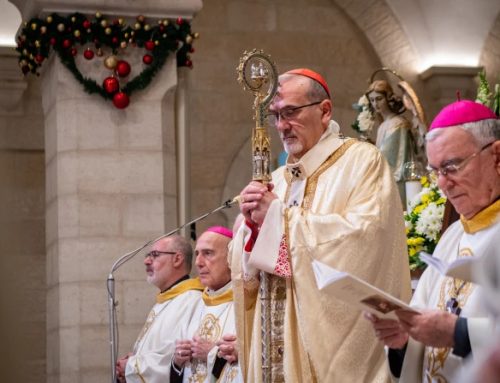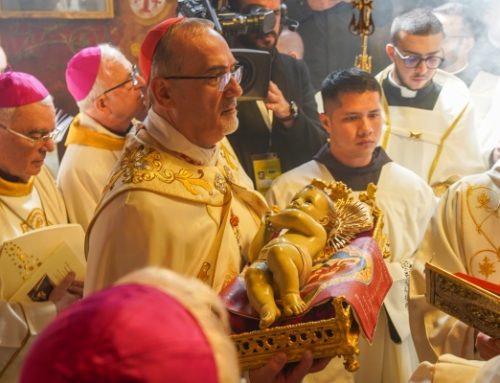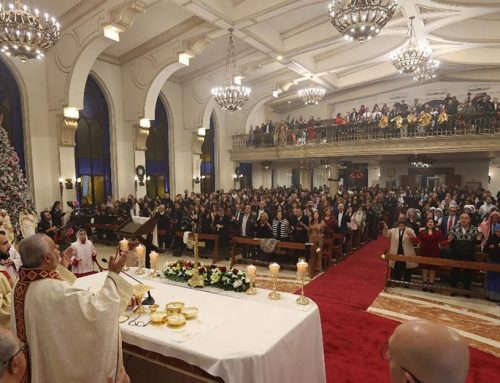
They called on Muslim religious leaders to fight radicalism more actively through a preventive approach, according to Vatican Ambassador to Jordan and Iraq Giorgio Lingua, who met with Pope Francis and other stakeholders earlier this month in Vatican City to discuss the situation of Christians in the region amidst the threat of terror groups.
In an e-mail interview, the envoy said the closed-door meeting was meant for Vatican ambassadors in the Middle East and other concerned officials to exchange information and assessment of the situation after the rise of IS, which forced thousands of Christians in Mosul to leave their homes.
According to Vatican Radio, Pope Francis discussed the violence against Christians and other minorities with the Apostolic Nuncios of Syria, Jordan and Iraq, Iran, Lebanon, Israel and Palestine, Egypt and Turkey.
Lingua said the fight against IS is necessary at this stage, but “bombs and tanks cannot stop He noted that many Muslim religious leaders have condemned what is being committed by the so-called “Islamic Caliphate”, stressing that this entity, which controls swathes of land in Iraq and Syria, “has nothing to do with Islam” and Muslim clerics should not stop at denunciation. “It is important to check what is taught in the Islamic schools and mosques, and take immediate and effective actions when violence and intolerance are promoted.” During the audience with the Pope, Lingua said he presented a brief on internally displaced Iraqis, mainly Christians, and the events that forced many to leave their homes. “I also discussed the major human violations committed, especially the ones related to religious freedom,” he added, voicing appreciation for the volunteers who helped those in need in Jordan and Iraq. Assessing the situation of Christians in the Middle East, the diplomat said: “Lebanon seems to be a good model of coexistence, and Jordan is a safe haven for Christians, but if you look around, the situation is quite critical. In the Gulf countries the Christian presence is significant and is growing, but, with a few honourable exceptions, suffer great discrimination both as Christians and as foreigners.” Lingua noted Jordan is committed to helping all Christians fleeing IS, urging them not to leave the Middle East. “However, Middle East Christians increasingly feel less at home,” he said, noting that almost all Iraqi Christian refugees in Jordan are thinking of heading West, which would be an “irreparable loss”. During the meeting, the Apostolic Nuncios stressed the importance of advocating not only for Christians’ right to remain in their own country, but also the right to return to their original land. “In order to respect this right, favourable conditions need to be created, among them peace, security, tolerance and the religious freedom which is guaranteed by the constitutions, but not always felt in everyday life.” According to Lingua, there is no “immediate risk” for Christians in the Kingdom. “Christians in Jordan are very grateful for the freedom they enjoy and for the good relations they have with the Royal family… nevertheless, one can see the growing phenomenon of fundamentalism here and there.” He added that the Apostolic Nuncios feel the obligation of promoting respect for human rights, as Christians are not the only victims of IS violence, but also the Yazidis, and moderate Muslim groups who do not share the same values of IS. By: The Jordan Times





